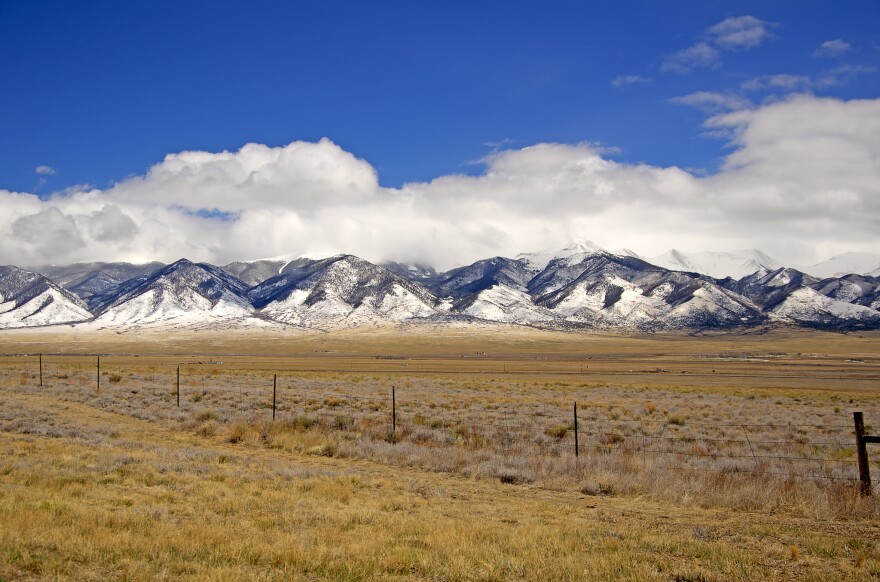Katherine James , an epidemiologist and engineer at the University of Colorado Anschutz Medical Campus , is leading the researc h on a s tudy t hat h as her par tnering with hund reds of well o wners t o learn m ore about metal contamination in water — an issue of increasing concern in the Mountain West . She came up with the idea about 15 years ago when she was working on her dissertation in the valley.
“They've been experiencing a drought since about 2002 with some years being less so, some years being more so,” she said. “Our work with community partners has explored not just how drought is impacting the water quantity but how it's impacting the water quality, both freshwater and groundwater.”
The study started last summer, and it aims to understand how drought contributes to the presence of metals in well water in the San Luis Valley in Southern Colorado.
Growing research shows our water is more likely to become acidic and contain naturally occur ring metals like arsenic due to increased temperatures and drought in the West. This could be problematic in the San Luis Valley be cause as James said , most families rely on groundwater for their irrigation systems and water supply.

The study seeks 1,000 well owners randomly selected and evenly dispersed around the San Luis Valley floor. Participants receive a free sample kit with collection instructions. The samples are sent to Stanford University where they a re tested for metals such as uranium, arsenic, iron, nickel and others.
“We have over 780 people enrolled and we've collected about 630 samples,” James said, “so we still have room for people to participate.”
After testing, James conducts an individual assessment for each sample and presents the findings to the property owner, explaining what it means for them and their water use.
“I've had a couple of members reach out to me quite often with questions related to the health of their livestock, specifically horses,” she said. “It's been a wonderful way to engage with the community.”
James said she has some preliminary results from the hundreds of samples tested so far.
“We are identifying anywhere between 5 and 8% of the wells have an elevated metal,” she said. “Some of the ones that are more concerning are arsenic and uranium. Those are more naturally occurring and are sourced from the groundwater.”
Those two metals can cause health problems such as cancer and kidney disease. James said there are pockets in the San Luis Valley where the soil and geochemical conditions are more conducive for these metals to appear in the groundwater. But most wells don’t have elevated levels of metals in them, according to James’ preliminary results.
Some 40 well owners will be invited to do a secondary round of testing in May. That will focus on the water hardness, pH and isotopes.
“That's an indication on the health of the aquifer,” James said. “So the older the water, the more that drought is having an impact.”
The potential presence of metals doesn’t surprise many in the rural San Luis Valley communities, James said, as they’re very knowledgeable about what’s going on.
“They're figuring out right now how to adapt to this long term. And they're developing ways to modify their agricultural practices,” she said. “They're looking at vegetative options, too, that use less water and yet still provide an economy for the community and also feed people who live outside of the community. They are really the front-line innovators of how the rest of us are going to have to eventually adapt.”
Those in the San Luis Valley who are interested in participating in the study can submit their information here.
This story was produced by the Mountain West News Bureau, a collaboration between Wyoming Public Media, Nevada Public Radio, Boise State Public Radio in Idaho, KUNR in Nevada, the O'Connor Center for the Rocky Mountain West in Montana, KUNC in Colorado, KUNM in New Mexico, with support from affiliate stations across the region. Funding for the Mountain West News Bureau is provided in part by the Corporation for Public Broadcasting.
Copyright 2023 KUNC. To see more, visit KUNC. 9(MDEwODI1MTE0MDEzNTk1NjQ4ODc4OTk0Ng004))


